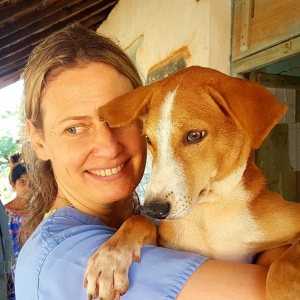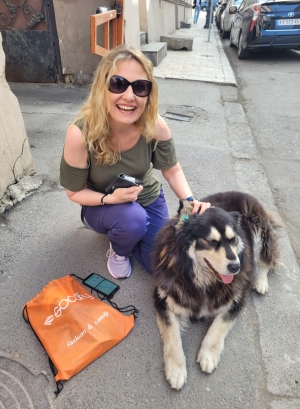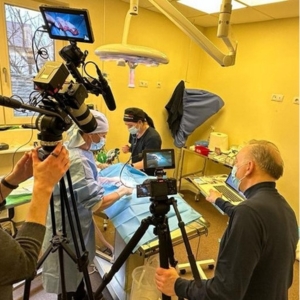-
-
- Council Members
- Role of Council Members
- Council meetings
- Council elections
- Previous election results
- Dr Louise Allum
- Dr Sam Bescoby
- Dr Andrew Clemence
- Dr Tshidi Gardiner
- Dr Reginald Godwin
- Paddy Gordon
- Dr Danielle Greenberg
- Dr Gerard Henry
- Dr Richard Hillman
- Dr Benjamin Kennedy
- Dr Tom Lonsdale
- Dr Darren Partridge
- Martin Peaty
- Alison Price
- Dr Peter Robinson
- Dr Jennifer Simmons
- Dr Sadie Spencer
- Dr Mary Thomas
- William Wilkinson
- Dr Lara Wilson
- Past-Presidents
-
- Standards Committee
- Advancement of the Professions Committee
- Audit and Risk Committee
- Education Committee
- Disciplinary Committee
- Charter Case Committee
- Preliminary Investigation Committee and Disciplinary Committee Liaison Committee
- Registration Committee
- Preliminary Investigation Committee
- Paper classification: some definitions
-
-
-
-
-
- About extra-mural studies (EMS)
- EMS requirements
- Information for vet students
- Information for EMS providers
- Information for vet schools
- Temporary EMS requirements
- Practice by students - regulations
- Health and safety on EMS placements
- EMS contacts and further guidance
- Extra-mural studies fit for the future
-
-
- Code of Professional Conduct for Veterinary Surgeons
- Code of Professional Conduct for Veterinary Nurses
- Contact the Advice Team
- XL Bully dog ban
- 'Under care' - guidance
- Advice on Schedule 3
- Controlled Drugs Guidance – A to Z
- Dealing with Difficult Situations webinar recordings
- FAQs – Common medicines pitfalls
- FAQs – Routine veterinary practice and clinical veterinary research
- FAQs – Advertising of practice names
- GDPR – RCVS information and Q&As
-
- Accrediting veterinary degrees
- Accrediting veterinary nursing qualifications
- Reasonable adjustments for student vets
- Health and disability in veterinary medicine study and practice
- The role of the veterinary schools and the RCVS
- Reasonable adjustments and the Equality Act 2010
- Reasonable adjustments and Day One Competences
- Examples of reasonable adjustments for vet students
- Annex
- Reasonable adjustments for student vets - summary
- Reasonable adjustments for student veterinary nurses
- Health and disability in veterinary nurse education and training
- Reasonable adjustments for students and the UK disability discrimination legislation
- Educational assessment of veterinary nurses
- Roles of key stakeholders in the application of reasonable adjustments
- Examples of reasonable adjustments for vet nurse students
- Embracing reasonable adjustments for student vet nurses - summary
- External review of the RCVS by ENQA
- Requirements for remote and online student assessments
International Member Spotlight - Dr Ursula Goetz MRCVS
 In this month’s International Spotlight interview, Dr Ursula Goetz MRCVS tells us about her life and work as an international animal welfare advocate and veterinary lecturer, as well as her new charity, BradyCare – an accessible online learning platform designed to empower vets across the globe to become more confident in surgery.
In this month’s International Spotlight interview, Dr Ursula Goetz MRCVS tells us about her life and work as an international animal welfare advocate and veterinary lecturer, as well as her new charity, BradyCare – an accessible online learning platform designed to empower vets across the globe to become more confident in surgery.
Can you tell us a bit about you, the organisation you work for, and where in the world you are based?
I’m currently based in Denmark where I have my own charity called BradyCare which aims to help animals by empowering people.
I’m German by birth, but I’ve spent more time living abroad than I have living in Germany!
Straight after qualifying as a vet, I went to live in Namibia where I worked in conservation for nine months. I then moved to Northern Ireland to work in mixed practice with farm animals, but it wasn’t really for me. I then moved to Hereford and worked in small animal practice for a couple of years. I had a great boss who saw I had a talent for surgery and really pushed me in that area (she was a bit of a tough loving mum!), and I learned a lot.
I knew I wanted to go into the charity sector but wanted to build up my expertise first. I didn’t want to go abroad without any experience to ‘practise’ on street dogs. Unlike owned dogs, we cannot obtain a history from street animals, plus they are exposed to diseases and parasites which owned animals don’t have to struggle with. Therefore, we should be extra mindful when working with them. After I left the small animal practice, I went between saving up money working as a locum in London, and then spending it all volunteering abroad, mostly in Asia. During that time, I got to know a few people out there who asked if I could teach them, so I did. That’s when I realised how much I loved teaching and how important it is.
After a few years, the Head Vet role came up at Mayhew. They were looking for someone with experience in teaching as well as in international animal welfare so everything kind of fell into place. I was there for 10 years.
What areas do you specialise in and how did this lead you to starting up BradyCare?
Surgery is still my area of expertise. I love it. But also international animal welfare, including teaching, as well as running BradyCare.
During my time at Mayhew, my role grew a lot. I did a lot of teaching, a surgery post-graduate certificate, and the certificate in veterinary education. International Cat Care also asked me to help out in Portugal. We had new grads from Medivet come to Mayhew to be taught too. The impact still didn’t feel enough though.
I learned through teaching that there’s a bottleneck on the veterinary side when it comes to animal welfare, especially in street dog and street cat population management. There is a real lack of practical surgical experience in countries that struggle with high numbers of strays, and I wanted to be able to bring that experience to people. That’s where the idea for BradyCare was born – I wanted to be able to facilitate online surgical principles and make everything more interactive and fun in order to build people’s confidence in surgery and to widen access to resources for those who may not otherwise have been given the opportunity to obtain the relevant experience.
What’s your favourite thing about your role?
For me, I’d say purpose is the highest priority.
Purpose is my real driver and what gets me out of bed in the morning. I think the financial side is short lived. Time is something we never get back, so I want what I do to matter and make a difference.
What has been the best part of your career to date?
It’s brilliant to be able to do hands on work where you treat an animal who was completely miserable and then be able to make it happy and healthy again. But for me it’s the ripple effect of my work. If I can light a fire in other vets to become confident, or even get to a point where they enjoy surgery, and then they can go on to help other animals and teach other vets, then that’s the biggest highlight for me. It’s that ripple effect that amplifies the impact.
One example is that I once taught a 63-year-old Portuguese vet who was nearing retirement, but she was absolutely determined I should teach her, and I did end up teaching her. She worked in an animal shelter and went on teach her entire team who benefitted massively from her skills. They were then able to help many more animals as a result. That was a massive highlight for me.
How do you like to start your workday and what does a typical day look like for you?
I start with a coffee. It has to be coffee! After that it tends to vary quite a lot because now my time is usually spent writing course content. I’m usually at my desk by around 8:30am.
However, I still get involved in other projects. Mayhew currently have an education project in Georgia, so I teach there from time to time. I also teach for Dogstar Foundation in Sri Lanka, Save the Dogs in Romania, and in Bulgaria at a beautiful CPD centre where we help to neuter the street dogs. I definitely need that alongside my desk work – I need the contact with the animals as well as the teaching side of things to keep my hand in.
When I’m in Denmark, I also sometimes film for BradyCare. I have a film crew (pictured right) and we use a nearby clinic who very kindly give up their operating theatre for us and put on a deal for animal owners, asking if they would mind their animal’s neutering surgery being filmed for educational purposes. The clients then get given that surgery free of charge. Last time we had a couple of homeless people come forward with their dogs. I’m a great believer that it’s very much possible to do things where everybody can benefit.
Did you always want to work in the veterinary sector?
Yes – I always wanted to be a vet. I’ve always felt like I had a special connection to animals.
I was quite shy and introverted as a child with a lot of health challenges. I was bullied in school, but always felt at peace around animals. They never judge you. They are your friends no matter what you look like, what challenges you are facing, or what brand of trainers you wear! It might sound cheesy, but I feel like my career is just paying the animals back for all that they have given me. I’ve always fought for the underdog – both literally and figuratively – which is why I feel so strongly about animal welfare. The animals on the streets don’t have anybody to look out for them.
Can you tell us how veterinary regulation differs in the country you work in, to the UK’s regulation?
I’m based in Denmark, but I work across a lot of different countries and regulation really varies. In the EU things are, of course, well regulated, but in other countries, sometimes they don’t even have a licensing system and anyone can call themselves a vet. For example, I once had someone introduce me to the ‘best veterinary surgeon that they had’ who was actually a dentist. So, it’s really quite scary. There’s a lot to be said for pushing for standardisation.
How does your role uphold and protect animal welfare?
It’s about empowering vets to be confident in surgery. Vets face so many pressures and are often nervous about surgery because they are scared of making mistakes. If I can help alleviate some of the nerves around surgery and can provide people with a safe interactive learning environment where they can take things in at their own pace, then hopefully that will make more people confident in their capabilities.
Funnily enough, the best surgeons are usually the ones who are initially scared of surgery, because they’re very gentle and respectful and want to get it right. Those are the people who we need to keep in the profession. If the pressure becomes too much for them and they end up walking away, then we have lost a very precious professional who could have been doing a really great job.
What do you get up to outside of work?
The lines are quite blurred – I walk on the beach and think about BradyCare! But generally, I like it quiet. I love being out in nature. I still sometimes go to London and, while I like the buzz, I mainly enjoy a bit of gardening, hiking, walking, and camping.
When I travel for work, I don’t really get any down time. I love it, but it’s exhausting - you just can’t say no when animals are coming in and need your help. But the people I work with give me a buzz too. They’re all so keen to make a difference. We’ll all go out together in the evenings, so it’s socialising but often talking about work.
A lot of your work is about inspiring confidence in others. Why do you think confidence is so important?
Time is precious and there’s not enough time to worry about not being good enough. I used to struggle a lot with imposter syndrome and thought that I wasn’t good enough and that was my biggest time killer. I still don’t think I’m one of the high-flyers and still find things really tough sometimes. I want to help people overcome that fear of failure, because that’s the thing that holds people back the most.
People are very modest and tend to say ‘oh, I just wrote a book’ or ‘oh, I just finished this qualification’, for example, but there’s no such thing as ‘just’. These things don’t ‘just’ happen. Once we achieve something, we often diminish our achievements looking back because we don’t really record the journey. I think successful people should talk more about their struggles because I don’t think there’s such a thing as a superhuman. There are just those who aren’t afraid to try and have that confidence and those who don’t. My mantra now has become ‘I’m damned if I don’t try’. If I try and I fail, then fine. At least I tried.
BradyCare is a registered charity in Denmark and is set to launch it’s first training module (bitch spay) in Autumn 2024. To find out more about BradyCare, visit bradycare.org.
Could you be our next International Member Spotlight? Find out more and how to get involved on our 'Could you be our next International Member Spotlight?' page.
Published on 26 June 2024